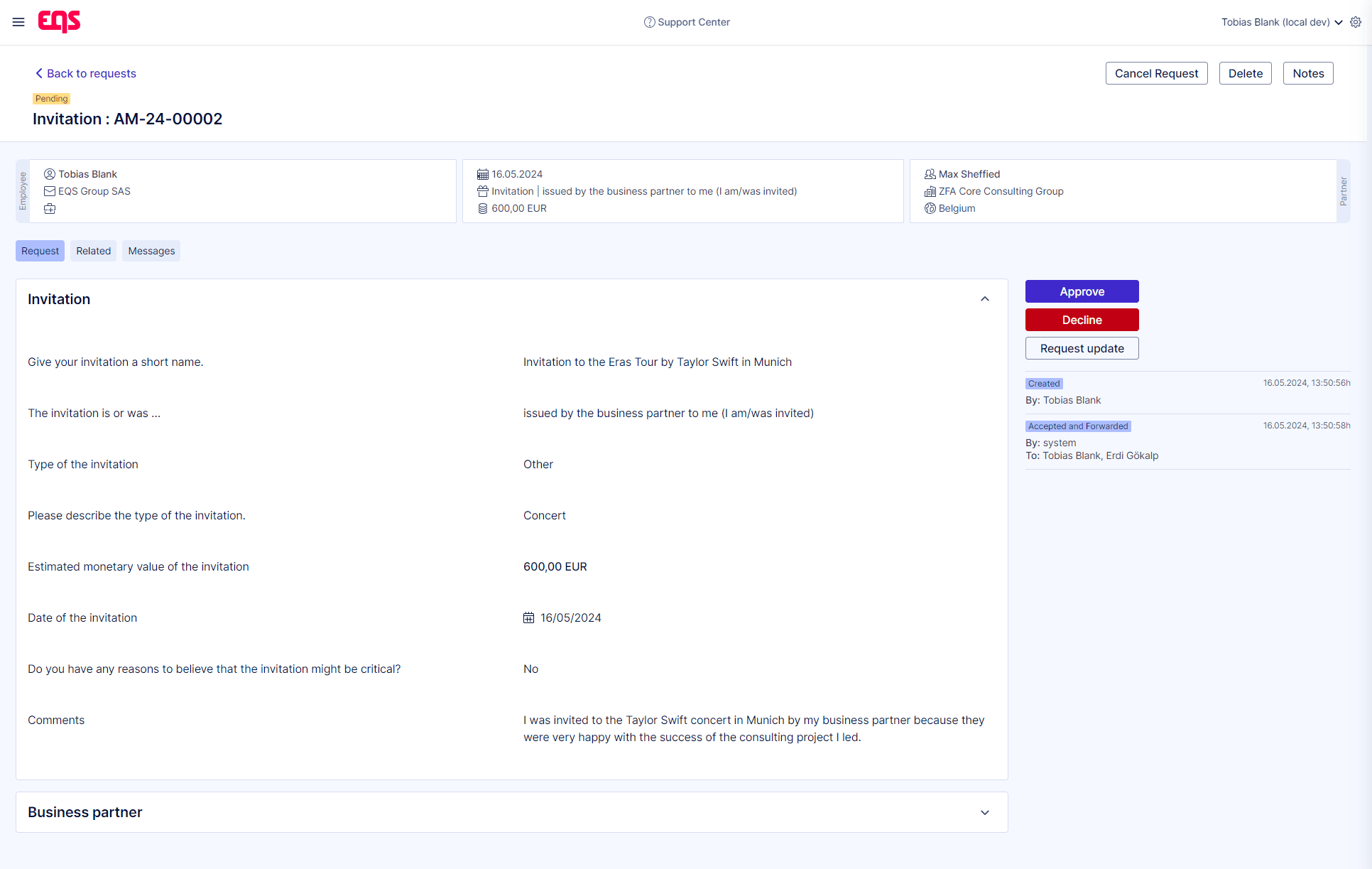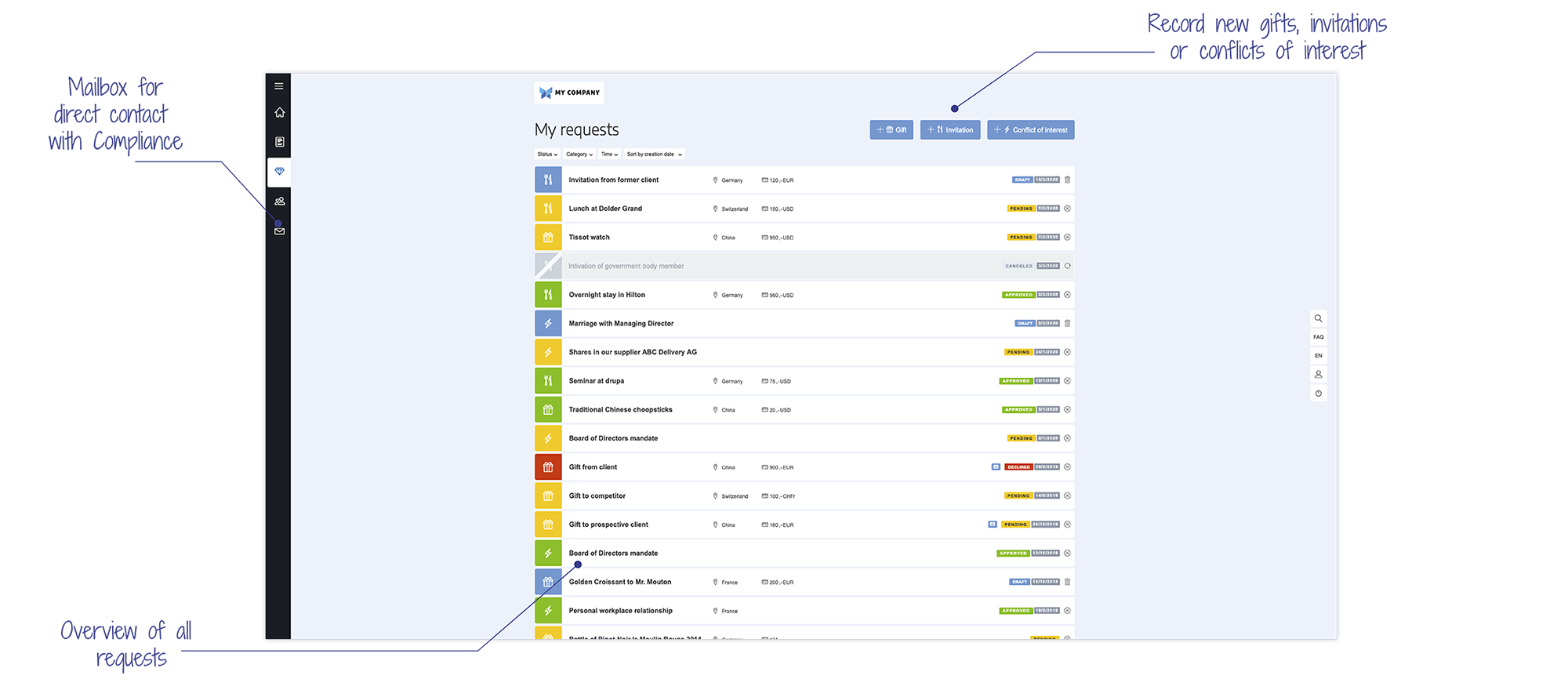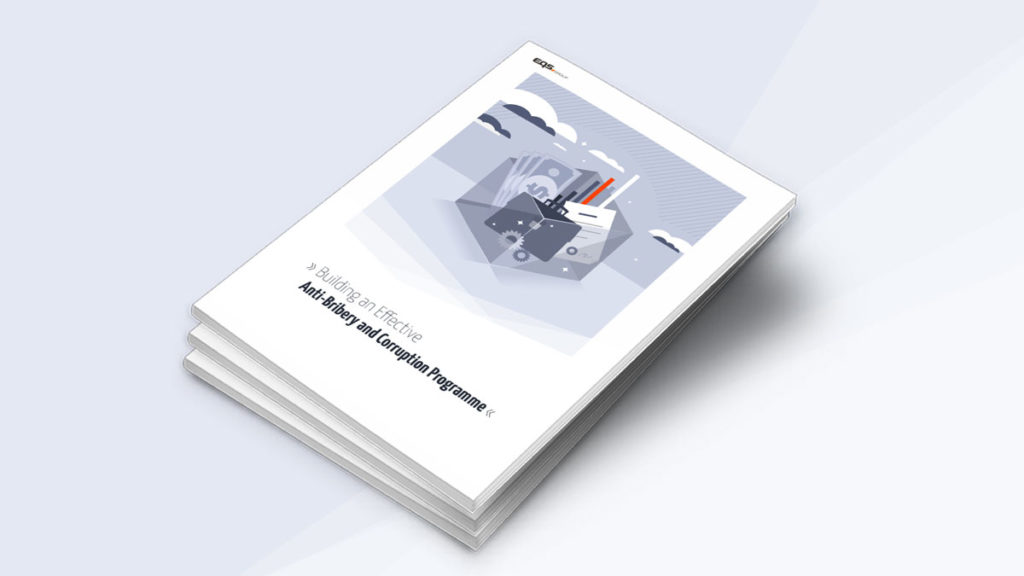Are you familiar with these problems?
There is a better way: Approvals.
Approvals explained in full
Benefits of the Approvalss
Intuitive operation for all users
Take a closer look at Approvals
Why tracking gifts, invitations and conflicts of interest is important
- In the context of FCPA, UK Bribery Act and Sapin II, regulators expect companies to implement processes to reduce the risk of corruption with regard to gifts, entertainment and travel expenditures.
- Auditors, law firms and consultants recommend registers for gifts, invitations and conflicts of interest which have already been implemented as best practice in leading organisations.
- Employees need clear rules and processes regarding monetary limits and other critical factors relating to gifts, invitations and conflicts of interest in order to act in the best interests of the company.
Still have questions?
- How can employees declare gifts and invitations?
- How can employees find out which gifts and invitations they are allowed to give and receive?
- Which countries and languages is Approvals available in?
- Can Approvals be adapted to existing processes?
- Can requests other than gifts and invitations be submitted?
- Can you set who can see and process which requests?
- Is a gift register mandatory for companies?
It’s easy: In their web-based customised Integrity Portal, employees can declare a new gift or invitation using quick links on the home page. They are guided through a questionnaire that can be customized according to your guidelines and requirements. Your employees can send the request directly or save it as a draft for later. In the requests overview, employees can see which drafts still need to be completed and sent, which requests are still in progress and which have already been accepted or rejected.
Entering a new gift or invitation is even easier and more convenient with the Integrity Portal App, which allows requests to be sent while on the road and offline. Using push notifications, employees are kept up to date on the current status of their requests.
Experience shows that employees are very uncertain as to which gifts and invitations are compatible with internal guidelines. Although companies often define country-specific thresholds and various criteria to help employees make decisions, this information is often not easily available.
This is where our “Quick Check” offers assistance. Based on some key questions – such as the country of the business partner, monetary value and possible involvement of government representatives – employees receive immediate feedback as to whether the gift can be given directly or whether it requires prior approval from a direct supervisor or the compliance department. These questions are defined individually by the company. The Quick Check strengthens your employees’ decision-makingand promotes compliance with your gift policy.
Approvals can be made available to employees in any language worldwide. There are no restrictions regarding countries – you decide yourself which countries should be activated.
Approvals offers maximum flexibility with regard to request categories (gifts, invitations, conflicts of interest) and questionnaires, as well as processes and authorisation limits. Thus, the Approvals can be set up in such a way that optimally maps your existing processes, avoiding costly and time consuming process changes. Our experienced project managers can support you in this process.
Rules can be defined according to customer requirements to determine which workflows and approval processes should be triggered after a specific request has been submitted. These rules can be defined very granularly and based on the attributes of the requests – such as country of the employee, monetary value or participation of government representatives. You can also use these rules to control whether certain requests are to be automatically approved or rejected, or whether manual approval – single-level or multi-level – is required.
The types of requests that employees can submit via their Integrity Portal are flexible and can be set according to company requirements. Typical request categories are gifts and invitations. But also conflicts of interest and sponsoring, donations and many more can be covered by the Approvals. You decide which categories you want to include, which questionnaires should be displayed within these categories and how the authorisation processes are defined.
The Approvals follows a strict “need to know” principle. Only users or user groups with the appropriate permissions can access requests (gifts, invitations, conflicts of interest) and approve, reject, forward and manage them. Granular permissions enable Approvals to map your internal work processes accurately. Here are a few examples:
- The Group Compliance Officer can see and manage all requests.
- The local Compliance Officer in Germany can see and manage all requests from German employees, but cannot delete or export them.
- The team leader can see and manage all requests from his team, but cannot forward, delete or export them.
The fight against corruption is high on the agenda of most regulators and supervisors worldwide. The appropriate handling of gifts and invitations is also reflected in many legal texts and guidelines – many of them with extraterritorial effect. Here are a few examples:
- In the USA, the Foreign Corrupt Practices Act (FCPA) provides for preventive measures to combat corruption. Among other things, the DoJ and SEC expect companies to establish compliance processes that minimise the risk of gifts and invitations being made in a corrupt manner. Due to the FCPA’s broad scope of application, business relationships with US companies, locations in the US, or simply transactions in US dollars may trigger an investigation by US authorities.
- In the UK, the UK Bribery Act also requires a critical approach to gifts and entertainment. Although the Serious Fraud Office (SFO) recognises signs of hospitality as such, it also points out that attempts at bribery are possible under this cloak of secrecy. The scope of the Bribery Act is similarly broad to that of the FCPA, as offers, promises and payments to any third party with the purpose of bribery can be pursued.
- In France, the anti-corruption law Sapin II, which came into force in early 2018, provides for a whole range of measures to combat corruption. At the end of 2019, the French anti-corruption authority AfA published a guide to help companies establish rules and processes specifically for dealing with gifts and invitations. The authority also uses these guidelines as a benchmark when investigating companies.
Contact our team
Always stay up to date
Our newsletter “EQS Compliance Compass” brings you informative and thought-provoking articles from the world of Compliance (e.g. noteworthy articles, white papers & more).











